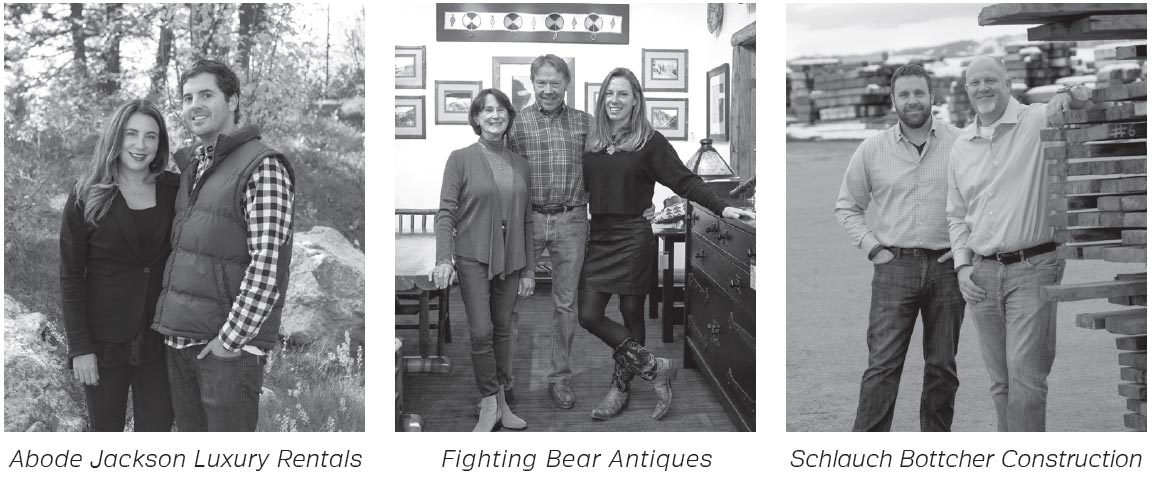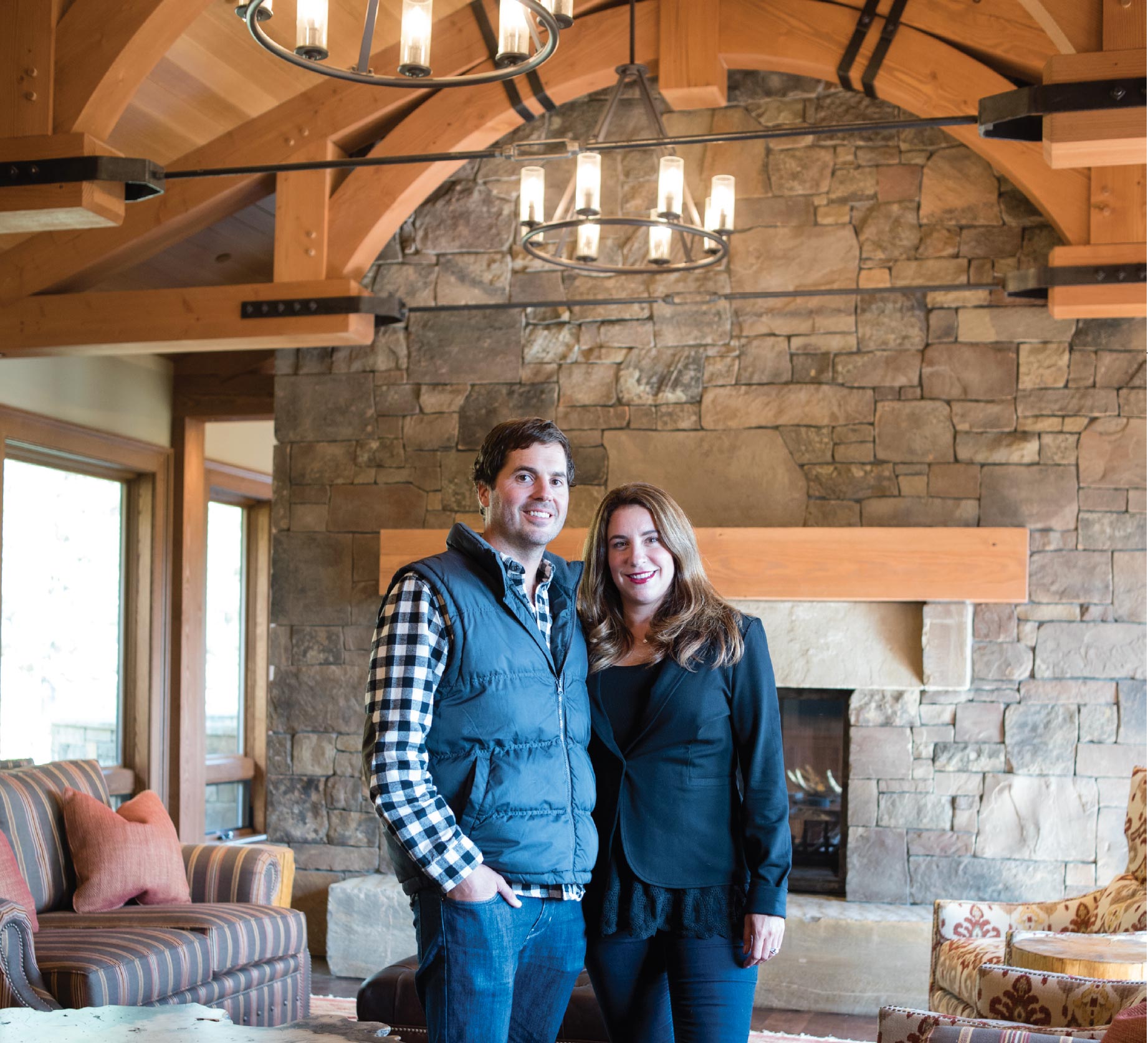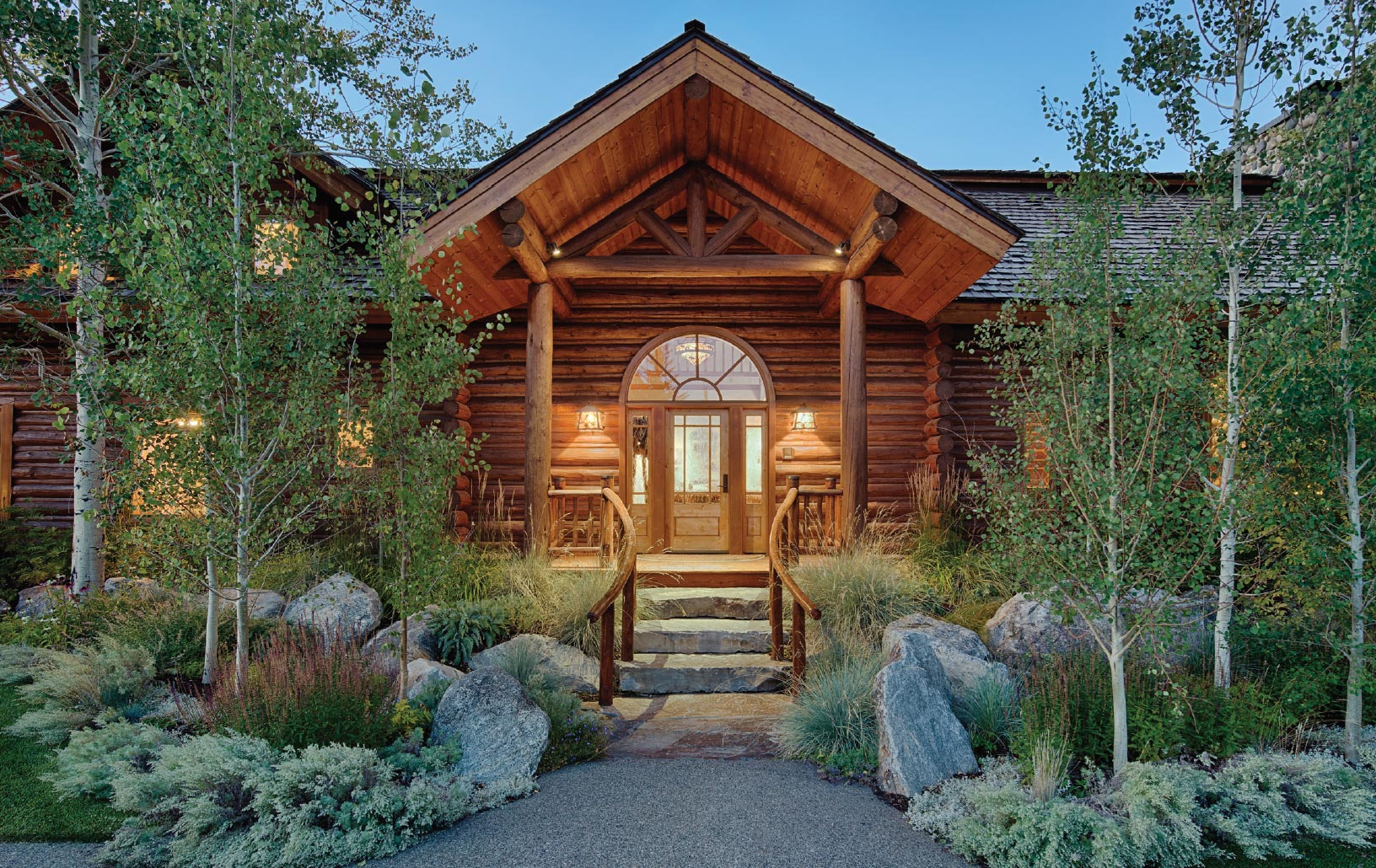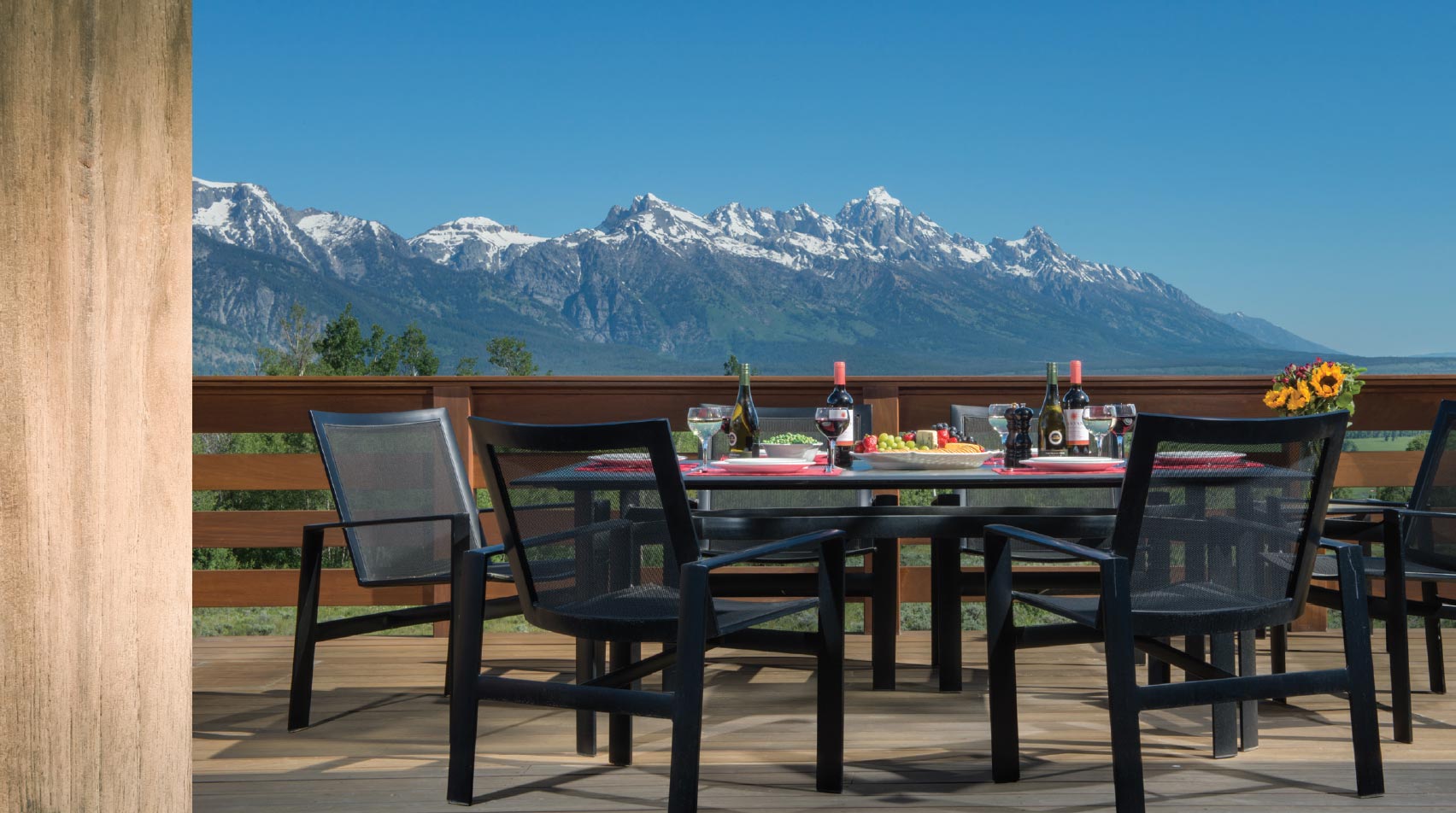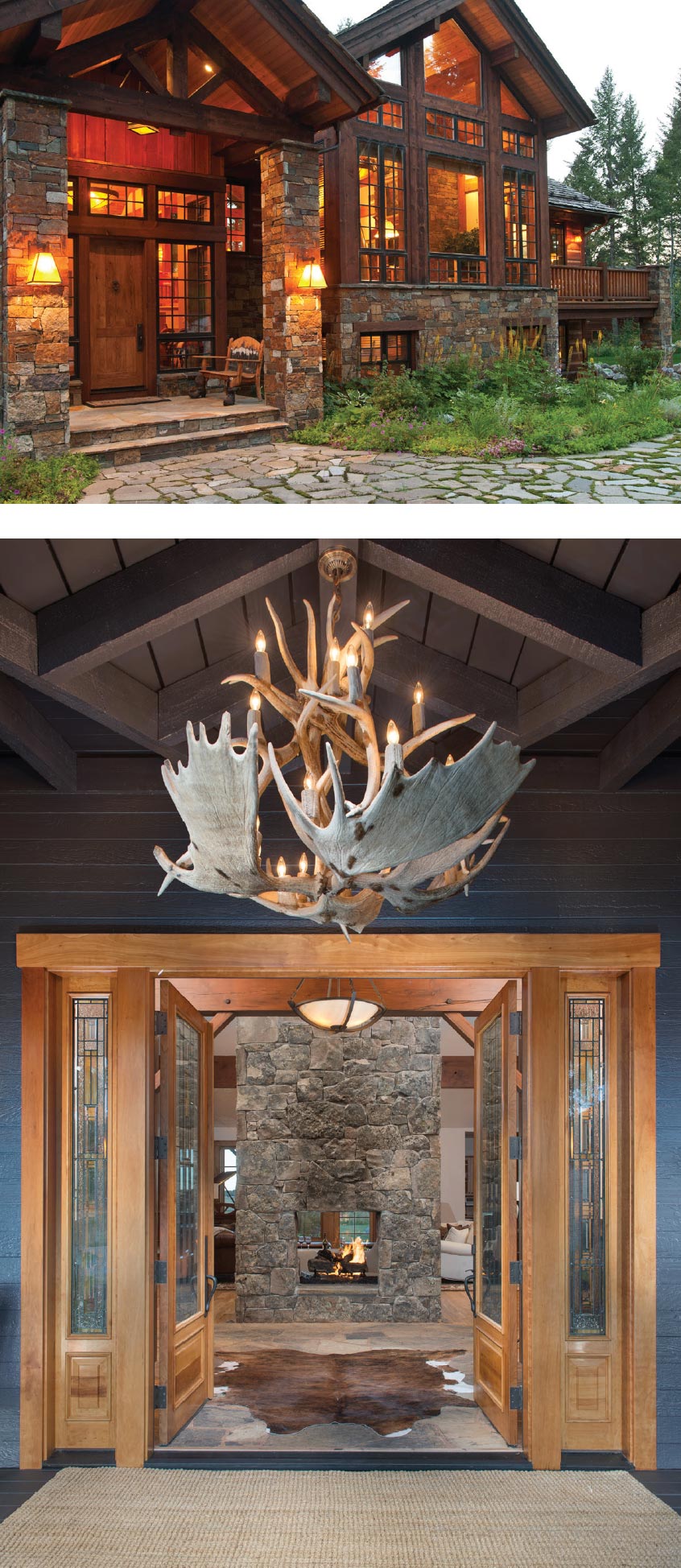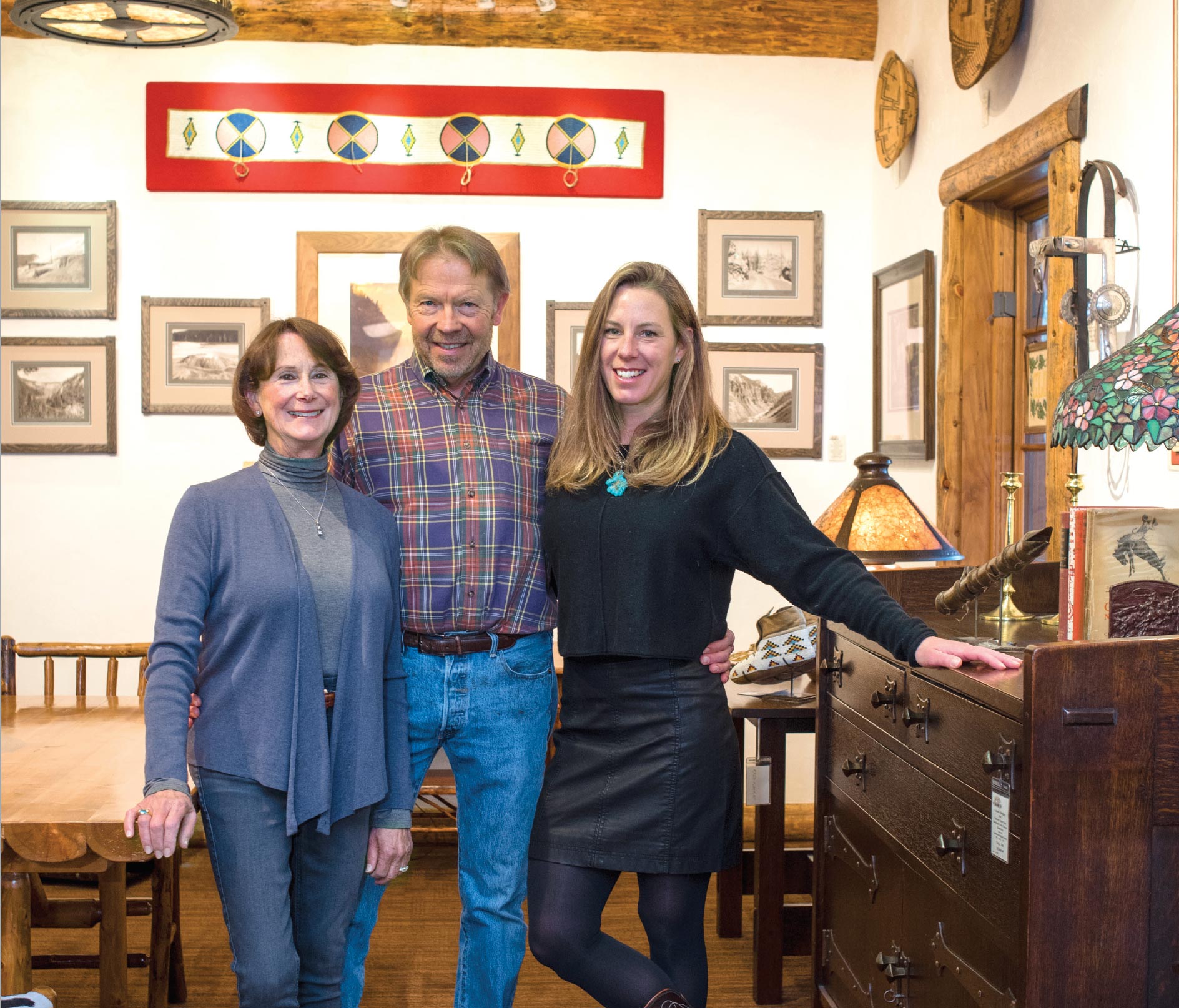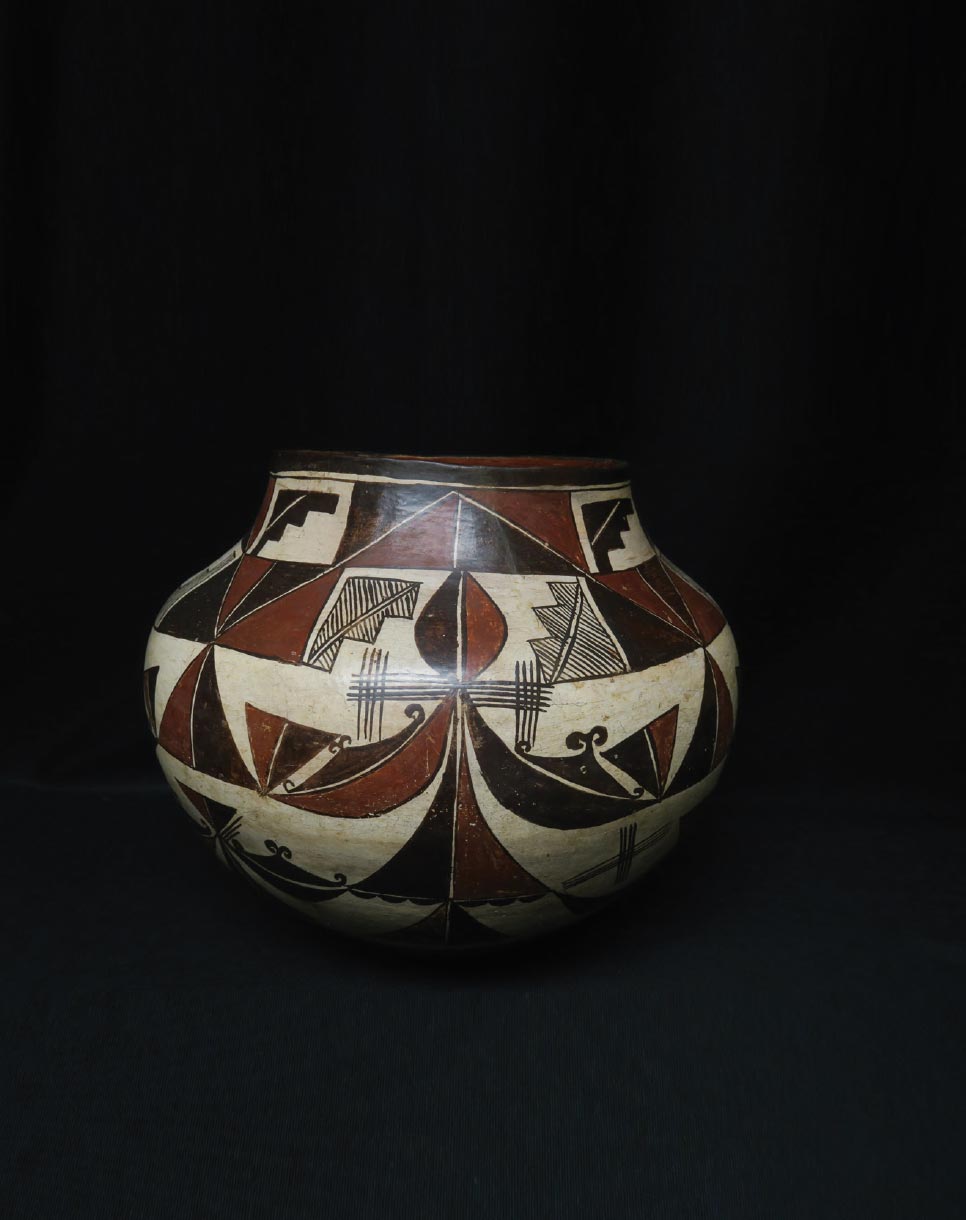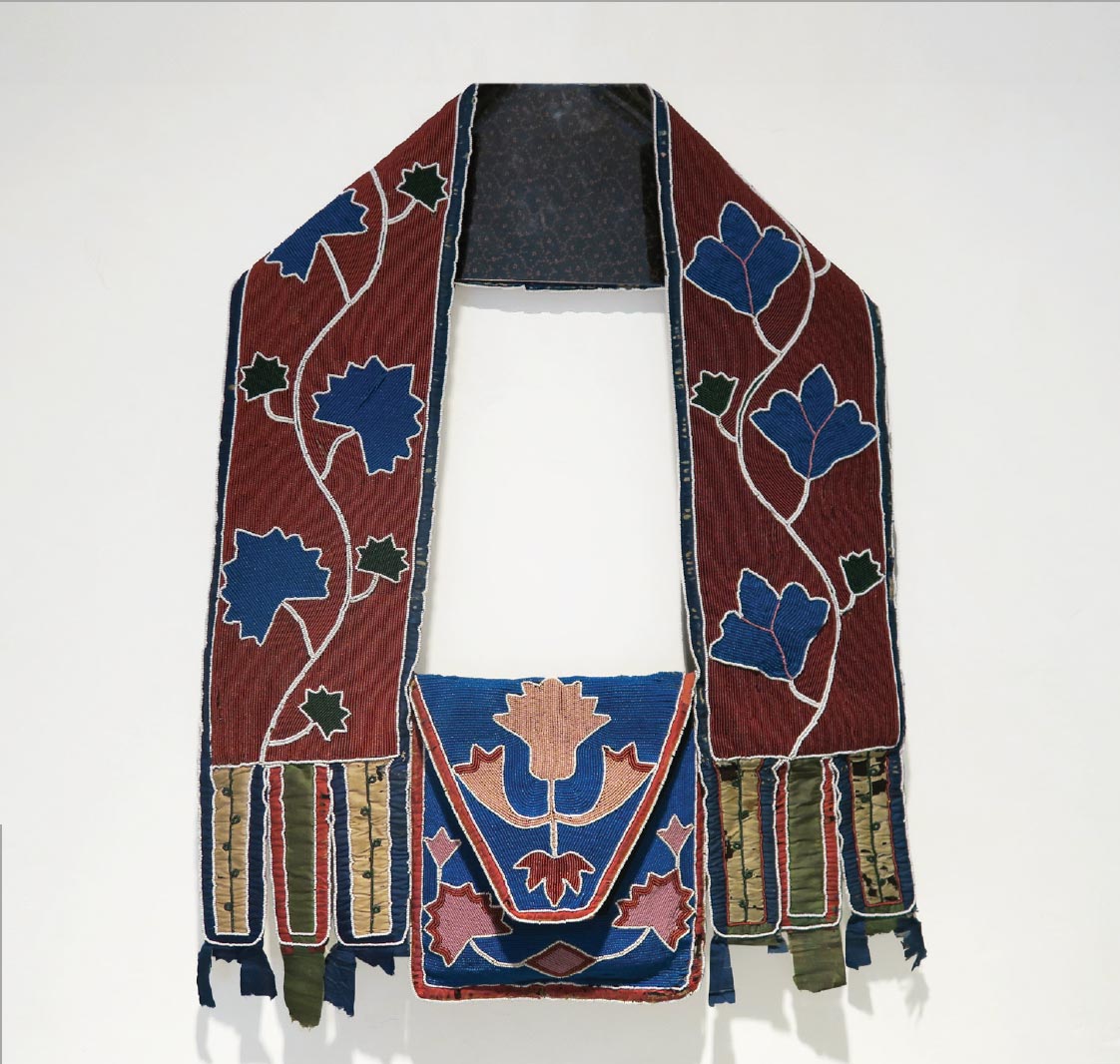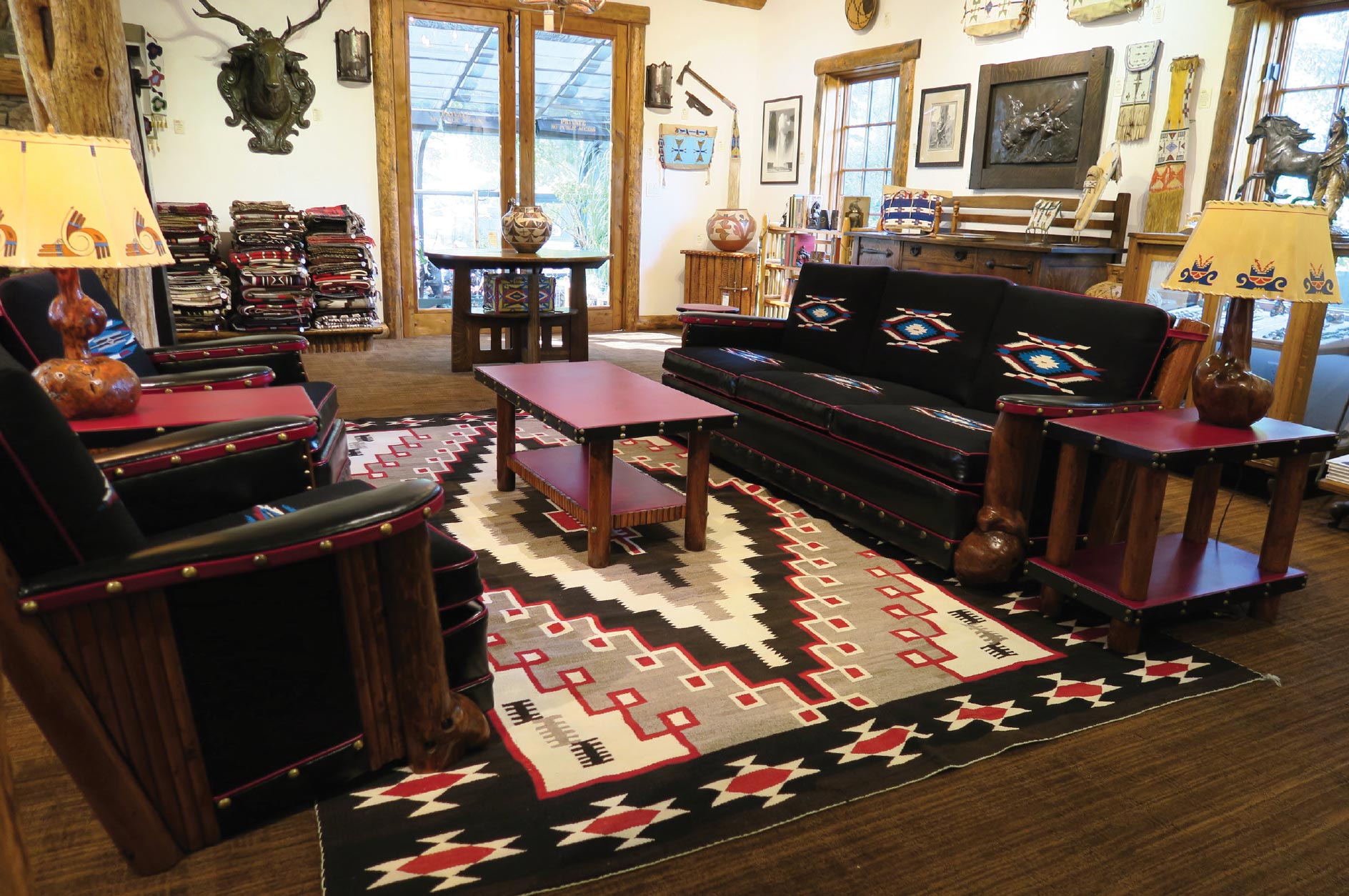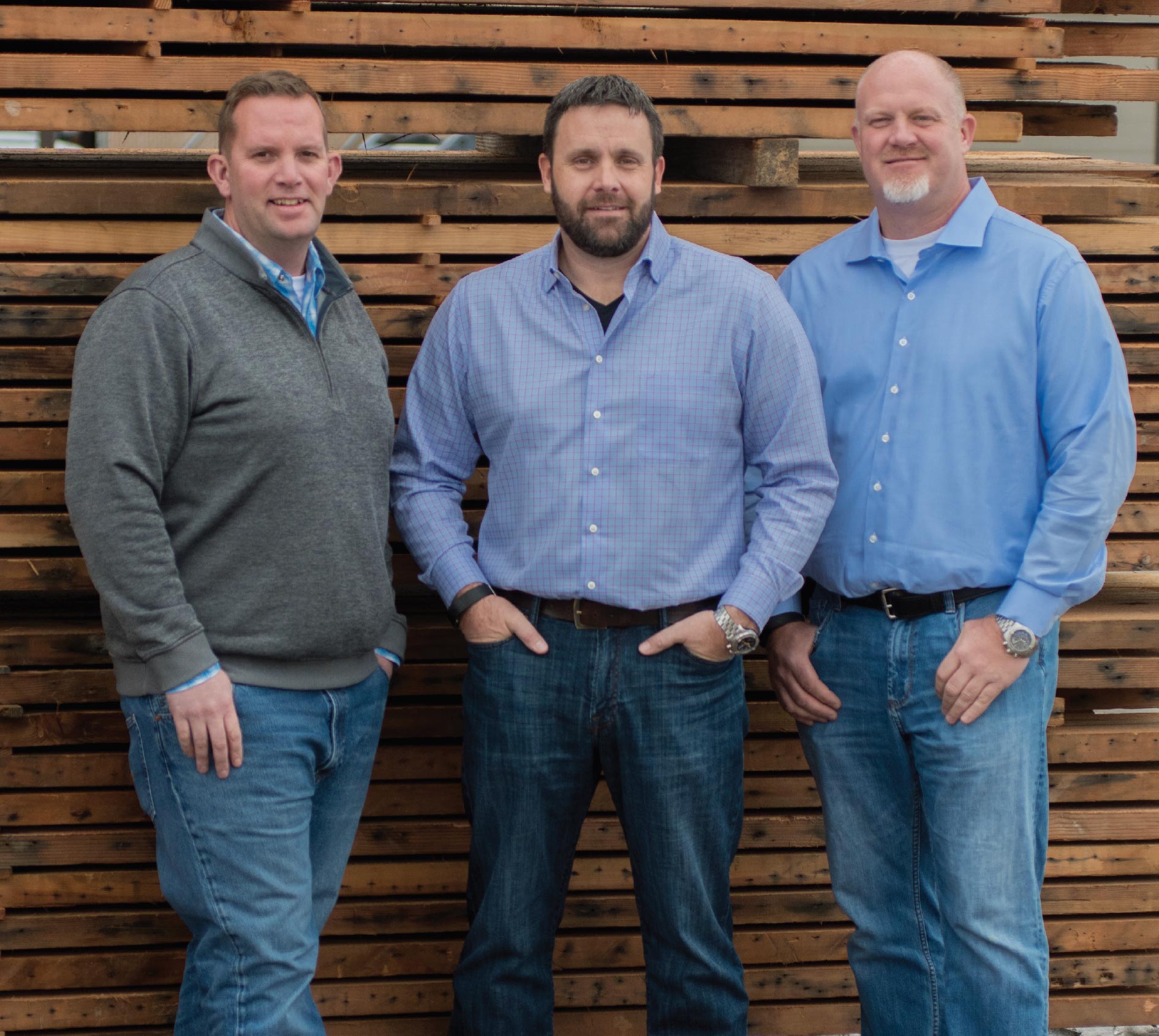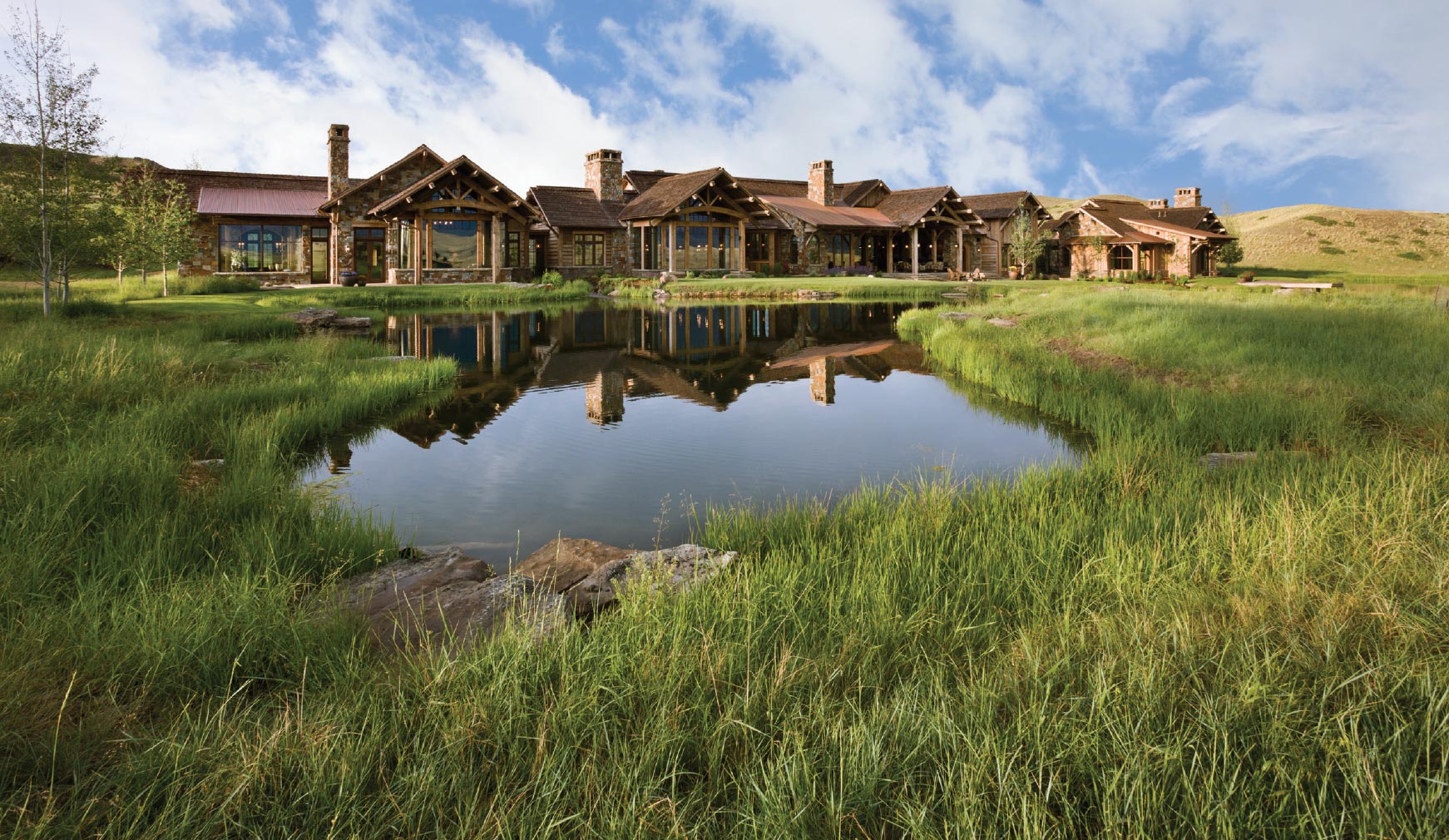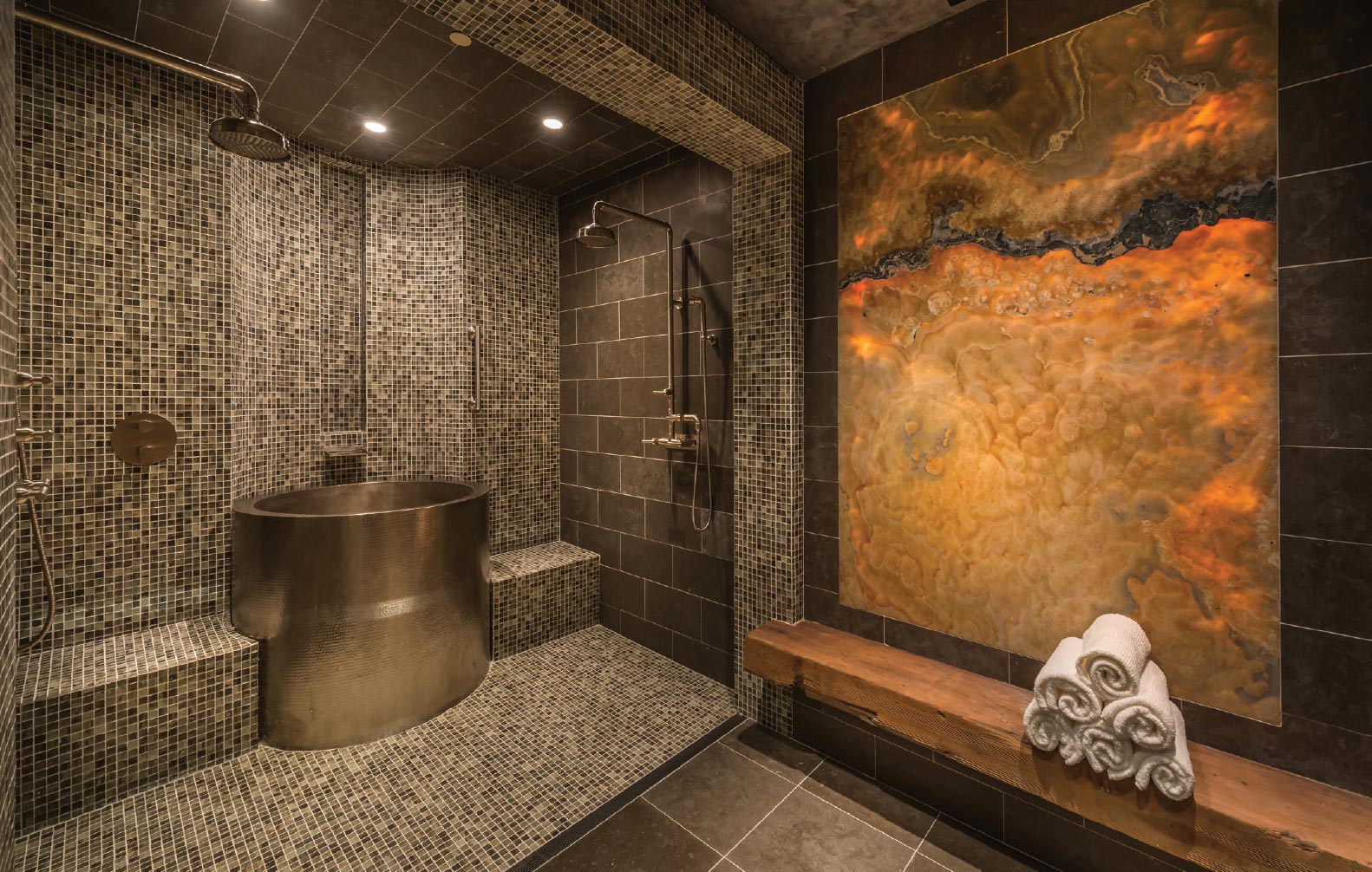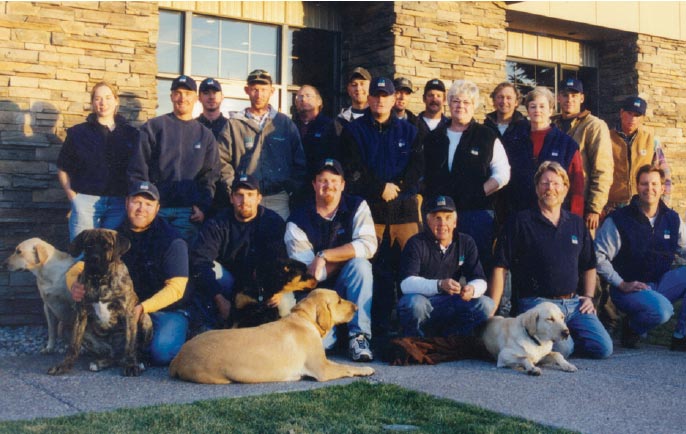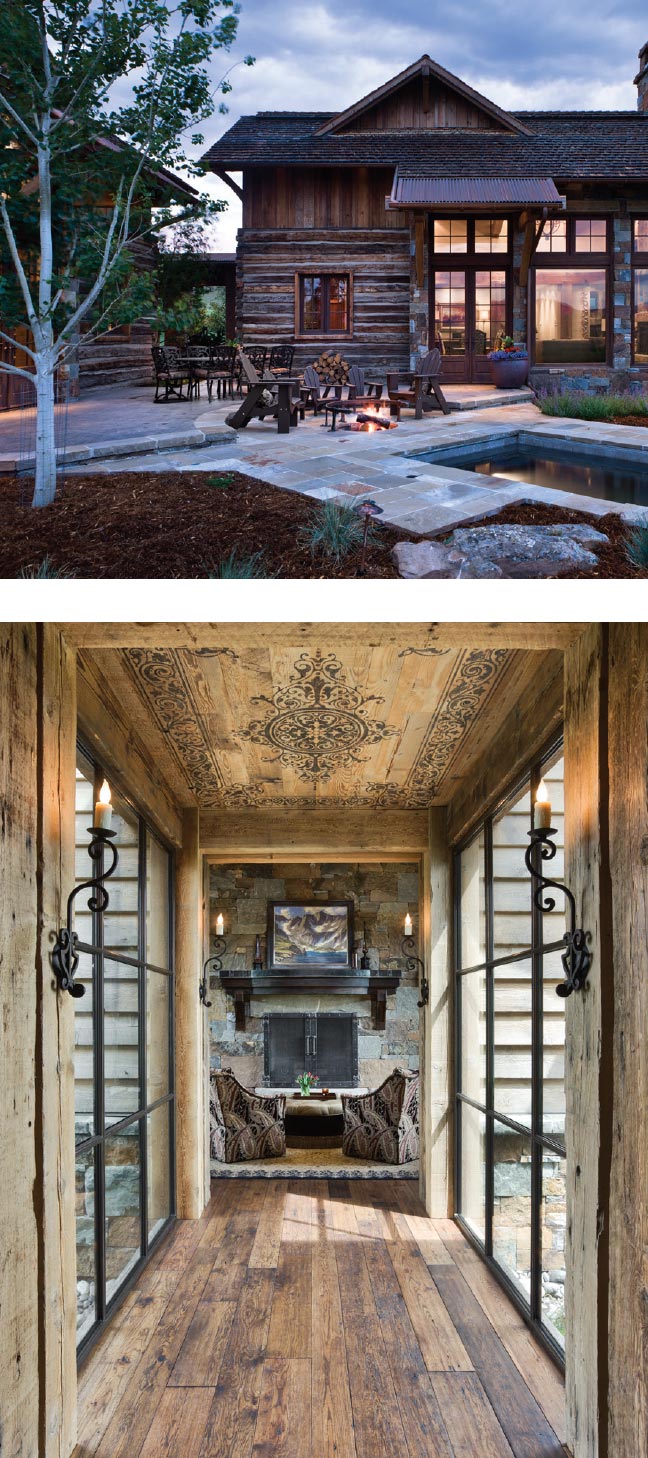Families working in business together have a long tradition that is evolving into new dynamic partnerships as they discover what it takes to work successfully together, both in the business world and at home.
While the Ma and Pa Corner Store is largely a thing of the past, that doesn’t mean there is a decline in family-owned and -operated businesses. On the contrary, family businesses continue to be important cornerstones of the economy, and that extends to the luxury home industry. Building upon the trust, communication, and core values fostered at home, families are creating businesses that rely not only on these commonalities but also upon each family member’s diverse talents, skills, and training.
90 percent of the nation’s businesses are family-owned or controlled. And family businesses provide half of the jobs in Europe and America.
Statistics speak to the importance of families in business together. According to the U.S. Census Bureau, 90 percent of the nation’s businesses are family-owned or controlled. And family businesses provide half of the jobs in Europe and America, according to Ernst & Young. Starting a family business is a daring thing to do, as during the early years family members sacrifice by working for free or at a lower rate than the external job market would pay for similar skills (Jennifer Xue, Silicone Valley Globe). However, as these local Jackson Hole businesses say, the rewards of working together are worth the challenges.
WHJ–FEATURED JACKSON HOLE FAMILY BUSINESSES:
Abode Jackson Luxury Rentals
Rob and Rachel Alday, co-owners of Abode Luxury Property Management, did not make the decision lightly to form a family business and create Abode. They studied the market to narrow their niche with a decision to manage only luxury homes, and they called in experts to advise on how to work together to keep their marriage healthy and to grow the business.
When Rachel and Rob met in Park City, Utah, their lives were very different from one another. Rachel had a high-pressure corporate marketing position with a large national brand that required a lot of travel and long hours. Rob developed and sold resort properties, an equally challenging job. With their engagement and marriage, they started looking for career shifts that would allow for more time together.
Rob owned a residence in Deer Valley (Park City) that he rented out, and he had taken over managing the home himself after being disappointed by other property management firms. The experience suggested that there was a need for a property management firm that would take managing homes very seriously. As a luxury property owner, he felt he knew what was needed to serve clients’ expectations.
“I believe it is important to stay true and follow the course. People will see we are doing business the right way.”
–Rob Alday, Abode Jackson Luxury Rentals
“Property management at this level is hugely about trust,” Rachel begins. Rob continues, “We recognize the big step our clients take when they place a multi-million-dollar investment in our hands.”
Rob got referrals for managing other homes, and both continued to work at their other jobs as they grew Abode. Rachel hand-addressed and mailed 2,000 cards, and soon they added more properties. In 2012, at the time they were expecting their first baby, they felt it was time for Rachel to join the team but realized that working together might be difficult for their relationship unless they prepared. Rachel recalls, “We are very different interpersonally. I’m assertive and direct, and Rob reflects his Southern origins in his softer style and respectful manner. We brought in a therapist who focuses on functioning in the workplace. She essentially prepared and trained us with techniques and tips for listening and communication.”
Similarly, when Rob and Rachel were considering whether to expand Abode Luxury Rentals to Jackson, they again called in experts to advise them. Rob applied for and was accepted into 10,000 Small Businesses, Goldman Sachs’s mentoring and business training program that is often called a mini MBA. “As part of the application, I presented our business plan and our desire to grow and open an office in Jackson. It was an intensive program that established a network of support, and through it, with the help of my mentors, I refined our expansion, and then we made the leap,” Rob recalls.
“You have to find time to keep communicating.”
–Rachel Alday, Abode Jackson Luxury Rentals
“We’re very clear that we want to do a very good job and stay small. We will not manage over a certain number of properties, and we will manage only curated, selected properties,” Rachel comments. “If our clients are happy, then we’re happy.” When asked what she means by curated properties, Rachel explains, “We emphasize neighborhoods and locations like the Village and Aspens. While the price point and number of bedrooms varies, we stay within a certain genre of quality.”
Rachel and Rob agree that their skills meld and they make a good team. “Rob is universally likable and very patient,” Rachel observes. “I have learned a lot from Rob’s patience. It’s a lesson I learn every day. We talk a lot in the car, and he often coaches me to wait, step back, and slow down. He is almost always right, and this approach constantly pays off.”
Listening, Rob responds, “I believe it is important to stay true and follow the course. People will see we are doing business the right way. In fact, in Jackson, that’s how we have grown: word of mouth and referrals.” And what has Rob learned from Rachel? “The importance of communication. She sets an example for me and everyone.”
The pair finds that clients respond well to them as a family business. “It’s very important to our clients. Property management at our level is all about trust and loyalty. They make a leap of faith to put such an important investment in our hands,” Rachel says. “But they see our personal investment of our resources and our time. They see we have three small children and how much Abode means to us.” Rob agrees, “It’s our whole life.” Also, Rachel’s sister is the office manager and Rob’s dad does the accounting for an additional level of transparency and family connection.
One of the big issues for family businesses is separating work from family. After giving some thought to how they manage it, Rachel answers, “Property management is a 24-hour business, and business is always with us. We have learned to mix family into it. We have a nanny, we split time, and both of us realize we have to make it work. In the evening, one of us is there to focus on the kids. For us, the time in the car traveling between Park City and Jackson allows us to talk both about home and work. You have to find time to keep communicating.”
Rachel adds, “A small family business is not for everybody. We are a tightly-knit group. But for our employees, it works. They know we are working toward longevity, and for those who want that in their work, we are a good fit.”
The reward for Rachel is that unlike the corporate environment where she had little effect on outcomes, the things she can accomplish in a small, hands-on family business are specific and tangible—it’s more rewarding.
She recommends a professional business counselor for those thinking of a family business. “From an objective point of view, you gain an understanding of one another’s strengths and weaknesses and how to communicate and resolve situations. For us, it worked.”
Fighting Bear Antiques
For Terry Winchell, home and business are closely intertwined. For one, his home is in the same building as his store, Fighting Bear Antiques in central Jackson, and two, his closest business partner and collaborator is his wife, Claudia Bonnist. To make it even more perfect for Terry and Claudia, their daughter Cheryl is also involved in the business, and they get to see her every day.
There is probably not a more closely-knit family business than a family farm, and Terry’s roots are on a family farm in western Nebraska where his Russian-born grandfather often said, “You walk, you work.” Needless to say, with such strong lessons emphasizing labor and discipline at home, Terry learned to be resourceful and self-sufficient at a young age. He also learned to fix anything—wiring, plumbing, and keeping old cars running. He took shop classes, taught himself woodworking, and for a while, he built houses.
Winchell was only 14 when he first bought and sold an antique table for a profit. In retrospect, he sees his early years as ideal preparation for dealing in antiques. “Fighting Bear Antiques is a very vertical business,” he explains. “We do everything ourselves, including repairs. Doing the work myself makes it cost-effective but more importantly, it ensures the condition of the pieces.” Also, collecting and selling antiques seems ideally appropriate for his temperament, as he is an impassioned reader with a love for history.
“I think my best advice for someone considering a career is that success and money are not the same thing.”
–Terry Winchell, Fighting Bear Antiques
Winchell opened Fighting Bear Antiques in 1978, a block off of Jackson’s town square. Claudia Bonnist fell instantly and completely in love with Jackson when Terry, then a widower, married her. She also seamlessly found a place in the business.
“I met Claudia in Sanibel Island, Florida,” Terry recounts. “There she was, a real estate agent with a strong awareness of homes and the touches and art pieces that can make them more livable and engaging. Her father was a publisher of fine art prints, the country’s largest art print publisher, and she grew up in the business. Her background was, of course, very different from mine, and through it she developed a strong appreciation for art and a great business mind. Also, at a time when few of us had very good computer skills, she was amazing and could even design a website.”
“Claudia brings an extra level of trust to the business as my partner,” Terry continues. “It’s very beneficial. She also possesses different qualities that strengthen us as a team. She is more rounded in her knowledge, she sees things differently, and she listens very well. She has a great sense of art and beauty that she learned from her family, and her experience in real estate helps in discussions with people who are selecting pieces from us to enhance their homes. I have found women to be excellent business people, and Claudia exemplifies it.”
Jackson has changed a great deal since 1978, and Fighting Bear Antiques has matured with it. Instead of a general line of antiques, now Winchell says they are more specific in what they carry. Walking through Fighting Bear, there’s rustic furniture, American Indian beadwork, Navajo rugs and textiles, and other fine pieces, and Terry mentions that there are many more selections in the nearby warehouse.
Some of the most interesting pieces that Fighting Bear has in its collections are furnishings and accessories designed by Thomas Molesworth, an American furniture designer with a distinct Western style. Terry Winchell is a recognized expert on Molesworth, and in addition to lectures, appraisals, and art and architectural magazine articles featuring his expertise, Terry authored a book on Molesworth’s life and works entitled Molesworth: The Pioneer of Western Design. He also coauthored Living with American Indian Art: The Hirschfield Collection with Alan Hirschfield.
Terry Winchell now travels much of his time in his role as an expert to consult, to appraise, and to collect, but he always loves coming home to Jackson. He talks about how, as the owner of a family business, his and Claudia’s personal values and ethics are inseparable from the business and the difference it has made. “Ethics and values are beyond important in a small town, which is how I think of Jackson. Delivering upon promises, being honest, treating everyone the same, and being there after the sale are essential. As a small-town business, if you are not ethical, you will not survive. I have the same customers from 35 years ago, and they have become the friends we socialize with.”
Terry adds that he and Claudia feel that with success comes the obligation to give back to the community. Winchell has served as the Chairman of the Center for the Arts during its important expansion, on the board for the Park Foundation, and they are involved with the Buffalo Bill Museum in Cody.
Since Terry’s and Claudia’s lives are so closely entwined with their business, they have been challenged to carve out time away from work. “We really enjoy what we do, but we have learned the hard way to separate from work. I think my best advice for someone considering a career is that success and money are not the same thing,” says Terry.
Is a family business something Terry would recommend to others? “We enjoy working together and find it very satisfying. The best thing? I get to spend all day with my wife and our daughter, too. I would recommend a family business if you do something you like—not necessarily a hobby, but you have to do something you really enjoy. Also, you have to spend time with family and not let business take over and control you.”
Schlauch Bottcher Construction (SBC)
“We learned growing up that you do what you say.I think family provides an inherent trust and confidence, and we built upon that base.”
–Jamie Bottcher, SBC
Chad and Jamie Bottcher, brothers and owners of SBC, have always been close. Although Chad is four years older than Jamie, they grew up in a family in Wyoming where, as Chad describes, “everyone worked.” They shared the same friends, and during the summers they both worked in construction for the same contractor.
The brothers parted ways for a while when Chad completed his studies in architecture at Montana State University (MSU). Jamie soon followed to study civil engineering. In May 1996, Chad and Jamie, along with their father, Jim, were starting on their first project, a 5,000-square-foot home. Mike Schlauch joined them to head up office administration and contracts in 1997, and when Jamie graduated in December 1998, he became an equal partner with Chad and Mike. Over time and with retirements, Jim Bottcher and Mike Schlauch left the firm and Chad and Jamie Bottcher remain equal partners today.
Their niche is complex, well appointed, and distinctive custom luxury homes in many different architectural styles. How do their backgrounds—Chad’s degree in architecture and Jamie’s degree in civil engineering—play into their success? “We’re knowledgeable enough to be a pain,” jokes Chad.
Jamie adds, “Neither of us pursued licensing, but we’ve found that our backgrounds help us bridge gaps between architects, engineers, and the trades. It’s easier to find common ground and keep the teams unified so we get the best out of everybody’s contributions.”
They agree that in the beginning their hopes were simple and they set out to just make a living and do a good job. Chad recalls, “We started out very simply with a focus on doing a quality job. Our mom was our office manager, and, in fact, she just retired five years ago. We liked being small enough for constant contact with the jobsite, and growth was through necessity.”
The two didn’t grow up in a family business, but family impacts them on a daily basis as far as how they do business. “We learned growing up that you do what you say,” says Jamie. “I think family provides an inherent trust and confidence, and we built upon that base. We treat the rest of the team like family, and I think the trust and confidence in people that has its roots in family is infectious among the team. There’s also a sense of responsibility that results from regarding people like family, where it is important to us to take care of the team and, in turn, we trust our team to do their part.”
These common family values spill over into the Bottcher brothers’ personal principles and approach to business. Says Chad, “A true moral compass and the Golden Rule are integral to who we are. We try to respect people and are fair. At the end of the day it is important to do what you say you are going to do.”
“Ultimately, staying engaged and personal is part of the company DNA.”
–Jamie Bottcher, SBC
The challenge of separating work from family life has evolved for them over time. “For the first eight to ten years with our parents also involved in SBC, family business took over the holidays and they were more like board meetings,” Jamie recalls. “We tried not to talk about business, but it was still on our minds, and it took effort to be disciplined.”
However, now that both brothers have children, their lifestyles have changed and during off-hours business mainly takes a backseat to the children’s activities. “Whatever my family wants to do is what I want,” says Chad. “We golf, and soccer takes up our time.” Similarly for Jamie, his son is involved in hockey and his daughter likes crafts, and as a family they go “glamping” in the summer and in the winters they ski.
They have been in business together since the mid ‘90s, but Jamie and Chad agree that they still learn from one another. “We are constantly learning, and we try to set aside ten minutes every day to talk things over,” says Chad. He adds that their communication has evolved through working so closely together. “It’s almost like we speak our own language, plus many things go unsaid between us. Also, when we review what’s going on, 99 percent of the time I find that Jamie and I handle things in exactly the same way. It makes it comfortable.”
Jamie and Chad are resisting growing bigger, and find that the size of their firm better serves clients. Jamie explains, “Trust is important between contractors and clients, and we are small enough to get to know all our clients. One of us will be the client’s main point of contact. By working closely with us they sense our integrity and commitment to give them a quality product for a fair value. We prove to them that we are spending their money as if it were our own. Ultimately, staying engaged and personal is part of the company DNA.”
Planning for the future of a family business is always a concern, and Jamie says, “I suppose with any business that is your livelihood, you set long-term goals and plan out over a longer horizon. If any family members want to be involved we would support it, but we have no expectations to involve our children. We want our kids to make those decisions.” Chad adds, “If you don’t enjoy what you are doing, it’s just a job.”
Other people may consider going into a family business. Based on their success, what have they learned or could they recommend? Jamie considers this question and answers, “With family, it’s easy to bring in previous relationships. To begin on a stronger footing, first and foremost, look into the mirror and see your own shortcomings and others’ strengths. Everyone has strengths and weaknesses, and this builds mutual respect. Also, you have to keep an open mind, because however well you plan, you have to be ready to go through unexpected times together.”

